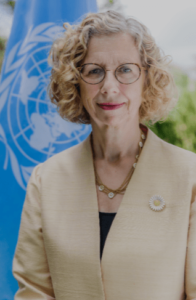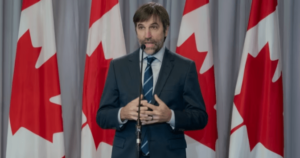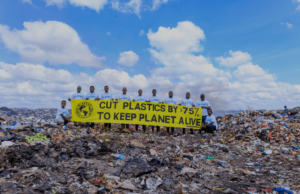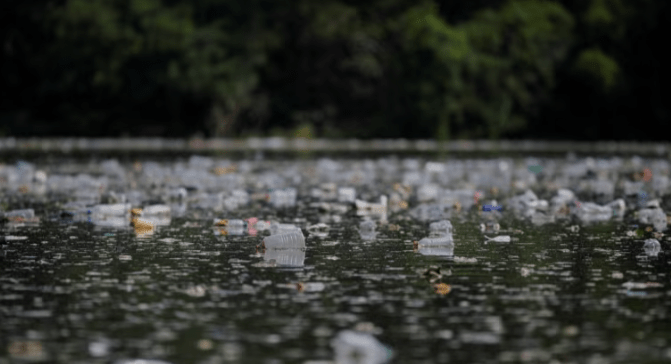Canada to Host its First-Ever Global Summit on Plastic Pollution Treaty
Canada is set to host its first ever Global Plastic Treaty Summit this week. The summit will be the fourth meeting (out of five) of the United Nations Intergovernmental Negotiating Committee for Plastics’ (INC). Thousands of negotiators and lawmakers from various governmental and non-governmental organisations (NGO’s) have gathered in the Canadian city of Ottawa this week.

Back in March 2022, 175 nations agreed to form the world’s first international legislation to prevent plastic pollution, particularly in the oceans, by the end of 2024. The short timeline gravely outlined the extent of plastic pollution in the environment and the urgent need for action by countries to prevent it.
During last year’s COP28 talks, it was well established by global representatives that the world must begin transitioning to green energy as fossil fuels are the largest contributor to global warming and climate change. Canada’s PM Justin Trudeau has called for greater collaboration between nations to end plastic pollution, by any means necessary.
Negotiators must formulate plans to reduce the reliance of humans on plastics, reduce the overall production of plastics, restrict harmful chemicals that go into plastic production while focussing on the overall impact of plastic on human health and environment.
Researchers and experts across the world have warned that the timeline for crafting meaningful changes to decelerate climate change is passing, and the world needs to agree on stringent measures to prevent the window from passing. The evidence of microplastics in the human body is one of the grave reminders of the level of crisis “plastics” pose to life on earth.

The United Nations Environment Programme’s executive director, Inger Anderson has said, “It’s a once-in-a-lifetime opportunity to fix something everyone knows needs to be fixed because plastic in the environment is not natural.”.
She further stated, “People globally are disgusted by what they see. The straw in the turtle’s nose, the whale full of fishing gear. I mean, this is not the world we want to be in.”
Anderson also said that the treaty is not exactly anti-plastic, as plastic is a particularly useful material. Instead, the war is on short-lived, single-use plastic products that are often dumped, buried, and burned, releasing greenhouse gases and warming the world in turn.
Canada to host the fourth UNINCP summit
Canada is set to host the fourth meeting of INC on the UNEP plastic pollution agreement. Previously, lawmakers had met in Nairobi last November and spoke in detail about the potential avenues for dealing with the world’s plastic pollution problem.
It ended in disagreements due to its narrow approach and lack of collective consensus from non-governmental organisations over the slow rate of progress in stopping plastic pollution, despite fervent advocacy for stopping plastic pollution.

After the Ottawa talks in Canada, policymakers will meet for a final round of negotiations in South Korea. Canada’s Environment Minister Steven Guilbeault has said the main challenge to the talks is the disagreements between non-governmental organisations and major fossil fuel producer nations over the reduction in plastic manufacturing.
As of March 2024, it was estimated that nearly 2000 garbage trucks worth of plastic are dumped into the oceans, lakes, and rivers of the planet every day. 70% of this amount is made up of single-use plastic, which has the least possibility of being recycled in plastic recycling plants.

Not to mention, the current plastic recycling plants are outnumbered by plastic production plants by ten to one. In a sense, it can be said that only 3% of the world’s plastic produced in a year finds its way back to recycling plants.
Despite the inequalities in plastic recycling, the international coordinator for the International Pollutants Elimination Network (IPEN), Bjorn Beeler, has expressed his concern about the nonchalant approach of major oil and gas-producing nations towards the serious situation at hand.
He has added that nations like China, the U.S., and Saudi Arabia are reluctant to sign a treaty that limits their fossil fuel production, which will further impact the world’s current plastic production. Whereas nations like Canada, France, Lagos, Nigeria, and many other nations have called for stringent and immediate actions to stop the plastic pollution at home, be it through the international legislature or national policies.
Calls Grow Louder for Coordinated Efforts to Resolve the Global Plastic Issue
Non-governmental environmental organisations like the Nature Conservancy, Greenpeace, and others believe that the current disagreements in forming stringent policies to curb the plastic pollution at hand will inevitably result in the lapse of the timeframe that we have for creating meaningful impacts on plastic pollution and climate change. The summit at Canada will be the final indicator of humanity’s will to alter climate change, and the final summit in South Korea will be the last meeting for the Intergovernmental Negotiating Committee.

Despite the uncertainties, many are hopeful of a positive outcome for the summit given the critical nature of plastic pollution on earth. Unless immediate action is taken, our planet will perish, and with it, us as well.











